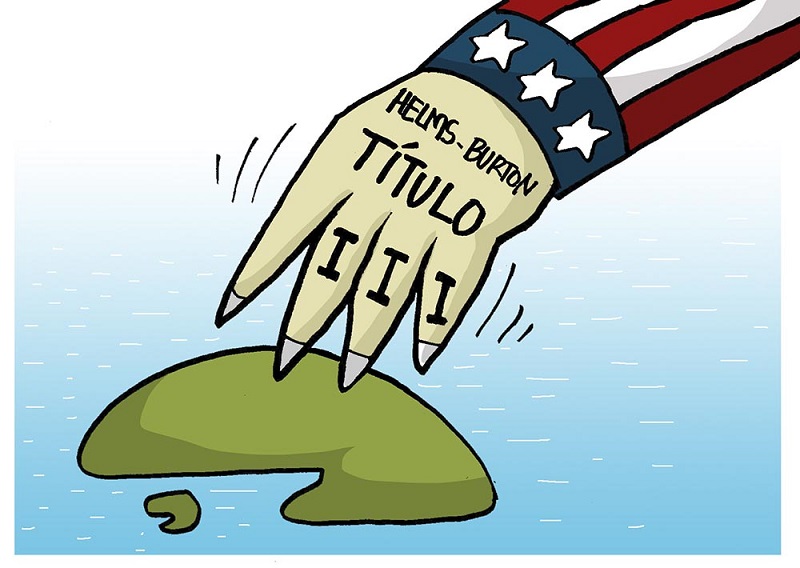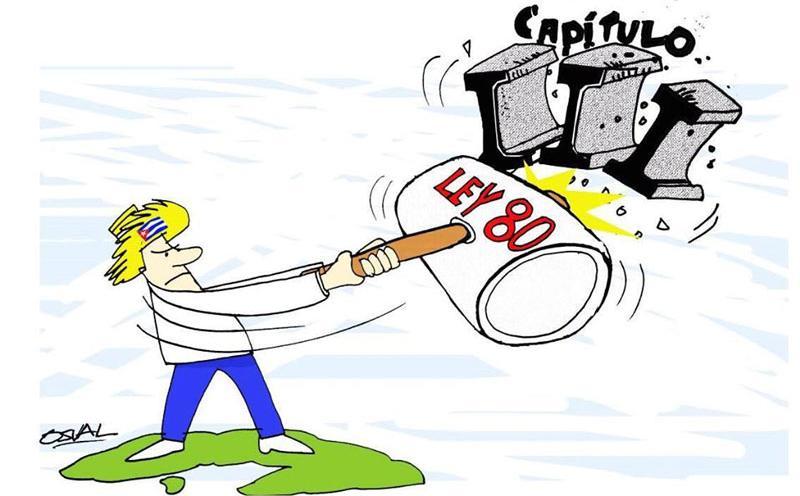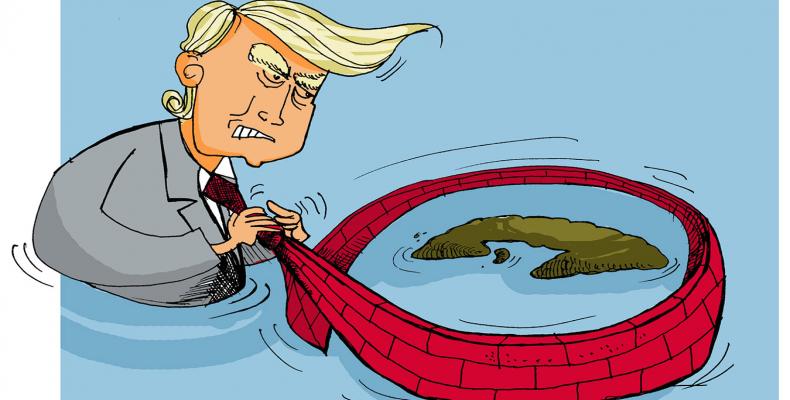
Ley Helms-Burton contra Cuba hace blanco en empresas de Estados Unidos › Helms-Burton › Granma - Órgano oficial del PCC

Canadá y UE ignorarán fallos basados en título III de ley Helms-Burton contra Cuba - 18.04.2019, Sputnik Mundo

Embajada de Cuba en España - Cuba rechaza enérgicamente la amenaza de activación del Título III de la Ley Helms Burton. Declaración del Ministerio de Relaciones Exteriores El 16 de enero de

Protestamos fuertemente contra la activación de la aplicación del Título III de la ley Helms-Burton | Embajadas y Consulados de Cuba

El título III de la Ley Helms-Burton viola no solo el Derecho Internacional, sino el de los propios Estados Unidos - Juventud Rebelde - Diario de la juventud cubana

Estados Unidos permite demandas contra ciertas compañías cubanas bajo el Título III de la Helms-Burton | Cubadebate
El Título III de la Ley Helms-Burton cumple un año en vigor | Economía | Edición América | Agencia EFE

Ley Helms-Burton: ¿qué implica y de qué mecanismos de defensa disponen los particulares y empresas de la UE? | Garrigues

Periódico Invasor - Diario online de Ciego de Ávila - Ley Helms-Burton en la escalada de EE.UU contra Cuba

Crece solidaridad con Cuba frente activación del Título III de la Ley Helms- Burton | Al Mayadeen Español

Agresión confirmada: Estados Unidos aplicará Título III de la Ley Helms- Burton contra Cuba desde el 2 de mayo - Vanguardia

Estados Unidos amenaza activar el Título III de la Ley Helms-Burton contra Cuba – Buenos diás Eslovaquia














